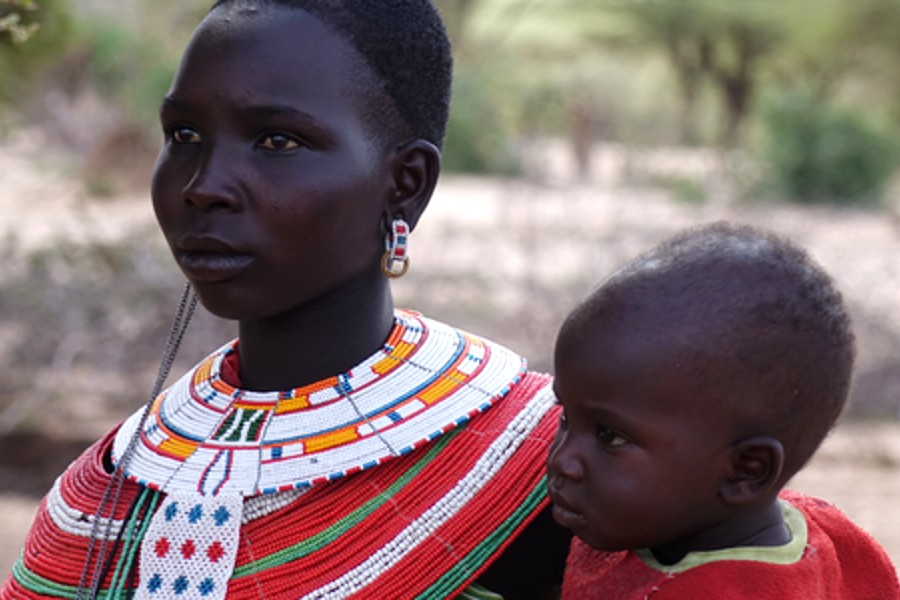
A new report released today by Survival International exposes major flaws in a flagship carbon credits scheme whose customers have included Meta and Netflix.
The report, “Blood Carbon: how a carbon offset scheme makes millions from Indigenous land in Northern Kenya”, analyses the Northern Kenya Grassland Carbon Project, run by the Northern Rangelands Trust (NRT) on land inhabited by more than 100,000 Indigenous Samburu, Borana, and Rendille people.
The project could generate around $300-500 million, and potentially even more.
Among the report’s conclusions:
- The project relies on breaking down the Indigenous people’s long-standing traditional grazing systems and replacing them with a centrally controlled system more akin to commercial ranching. This could endanger the people’s food security by preventing the traditional practice of migration during drought.
- There is wholly unconvincing evidence that NRT has properly informed communities about the project, let alone received their free, prior, and informed consent. The provision of information about the project has been limited to very small numbers of people, frequently long after the project had advanced.
- As a consequence, very few people in the project area have a clear understanding of what the project is about.
- There are serious questions relating to the legal basis of the project, in particular NRT’s right to ‘own’ and trade carbon from the lands concerned.
- The project does not present a credible case for its carbon ‘additionality’ – a fundamental principle for generating carbon credits.
Samburu woman, Northern Kenya. One of her family members was killed when grazing his animals near an NRT conservancy, allegedly at the hands of NRT park rangers © Fiore Longo/Survival
The report marks the launch of Survival’s “Blood Carbon” campaign, which highlights how the sale of carbon credits from Protected Areas could massively increase the funding of human rights abuses against Indigenous peoples, whilst doing nothing to combat climate change.
The report’s author Simon Counsell (former Director of Rainforest Foundation UK) said today: “NRT’s carbon project fails to comply with some of the basic requirements for carbon offsetting projects, such as showing clear additionality, having a proper baseline, and being able to measure carbon ‘leakage’ to other areas. The mechanisms for monitoring the implementation and impacts of the project are fundamentally flawed. It is extremely implausible that the carbon credits being sold by the project represent any real additional storage of carbon in the area’s soils.”
The head of Survival’s Decolonize Conservation campaign Fiore Longo said today: “After years of violating human rights in the name of so-called “conservation”, now Western NGOs are stealing Indigenous land in the name of “climate mitigation.” As this report clearly shows, NRT´s project is based on the same colonial and racist misconception that pervades many big conservation projects: that Indigenous peoples are to blame for environmental destruction. But the evidence shows precisely the opposite – that Indigenous peoples are the best conservationists. This project is not just dangerous greenwashing, it’s blood carbon: NRT is making money by destroying the way of life of those least responsible for climate change.”
Photo credit: 1) Fiore Longo/Survival.
Become a Harlem Insider!
By submitting this form, you are consenting to receive marketing emails from: . You can revoke your consent to receive emails at any time by using the SafeUnsubscribe® link, found at the bottom of every email. Emails are serviced by Constant Contact








